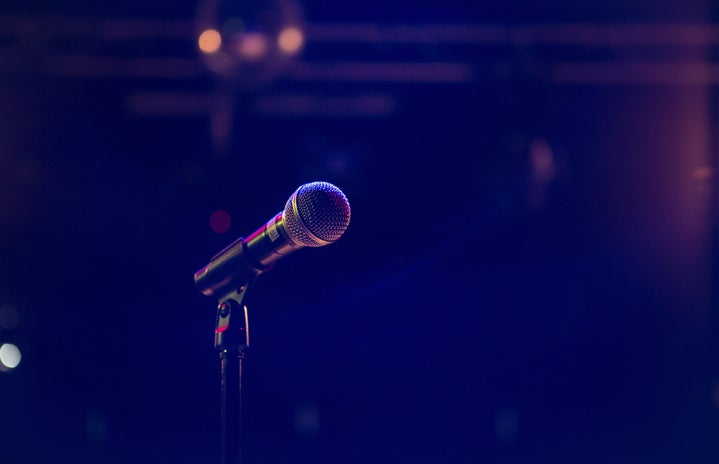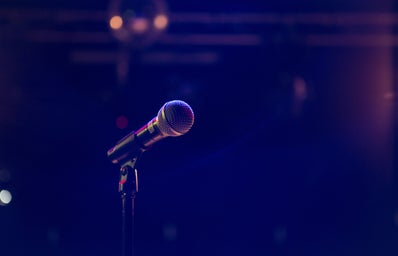Warning: spoilers for HBO’s The Idol ahead.
The Idol. Whether you love it, hate it, or never watched it, you’ve probably heard of it.
The newest HBO Sunday night drama from the minds of Abel Tesfaye, known creatively as The Weeknd, and Euphoria director Sam Levinson has had a rocky journey on its way to audiences. Between a bombshell exposé from Rolling Stone, a lackluster premiere at the Cannes Film Festival, and harsh criticism from film and TV reviewers, The Idol had generated a controversial buzz hot enough for a near million viewers to tune in with the promise of sleazy, raunchy television.
However, immediately after the last episode, the average viewer asked the same question as the stark black and red credits rolled: “That’s it?”
The Idol commits an offense nearly as bad as glorifying its abusive and exploitative main character, it’s boring.
After five episodes, the ‘scariest’ thing I took away was the smugness oozing out of the show amongst its poor pacing, awkward dialogue, and quite frankly, dull main characters.
I’m not going to discuss the overly-addressed elephant in the room. Yes, Tedros is a sleazy, awkward, manipulative character. And yes, Abel Tesfaye’s performance is severely lacking, save for a few impressive scenes throughout the season finale.
With that out of the way, we can move on to the main issues with Tedros and his victim or, apparently, manipulator Jocelyn. More than being uncomfortable inserts involving The Weeknd and his ex, Selena Gomez, as many online are theorizing, they suffer from a lack of any motivation, or character development, and do not hold a candle to the rest of the production’s cast. Tedros’ supposedly alluring character isn’t as mysterious or charismatic as the show paints him to be. At the same time, the scenes that Tesfaye has since come out and defended aren’t even all that uncomfortable, really, they’re just masterclasses in second-hand embarrassment. Jocelyn is so clearly written for the male gaze that any scenes meant to make you pity, hate, or even lust for her don’t work because she’s not a character someone can relate to; instead, she’s a stereotypical fantasy.
The script, for all its many faults, has a few scenes that are absolute gems. For these few gems, they don’t focus one bit on Jocelyn, Tedros, and their ‘will they, won’t they.’ Suzanna Son excels as Chloe, the incredibly young and talented protege of Tedros. Two of her songs, ‘Family’ and ‘Crocodile Tears’ swept me away, both because of Son’s beautiful vocals and the poignant scenes in which they were performed in.
Troye Sivan, another musician, aces the role of brainwashed and desperate Xander, while also backing his acting chops with impressive vocals.
Da’Vine Joy Rudolph as Destiny and Rachel Sennot as Leia bring a sense of humor and realism much needed to The Idol, and I found myself rooting for Leia in the season finale more than Jocelyn. Throughout the five episodes, I slogged through scenes between Tedros and Jocelyn hoping to learn more about what was meant just to be side characters.
The finale, however, both ruins and uplifts The Idol. While it dedicates a large amount of the runtime to performances from the incredibly talented worshippers of Tedros, it absolutely annihilates any interest and character development for Joss and Tedros.
After a heavy-handed metaphorical speech from Joss’ manager, we see Tedros’ life essentially ruined, brought down to his rightful peg, and we expect Joss to be freed finally and on the right path. Instead, out of nowhere, she becomes our villain.
Yes, the woman who was repeatedly abused, manipulated, and traumatized throughout the show was actually the mastermind pulling the strings the entire time.
After being forced to sit through that hairbrush scene, I couldn’t wrap my head around why Levinson and Tesafaye would throw this twist to the audience. Not only does it not make sense, but it also assassinates any character growth Joss might have otherwise gone through.
At the end of this, I was more insulted by the poor writing, symbolism, and character development than the wholly unnecessary sex scenes. Worse than that, it paints women and the #MeToo movement as manipulators set on ruining men’s lives rather than casting light on the actual abuse running rampant behind the scenes. Tesfaye and Levinson emit this smug, white-knight aura as they staunchly defend their show as depicting the dangers and darkness of Hollywood, acting as if they’ve delivered an Emmy-award winning documentary rather than a five-hour marathon of nothing that only further perpetuates the exploitation going on behind the scenes. Bring back the Amy Seimetz cut!


